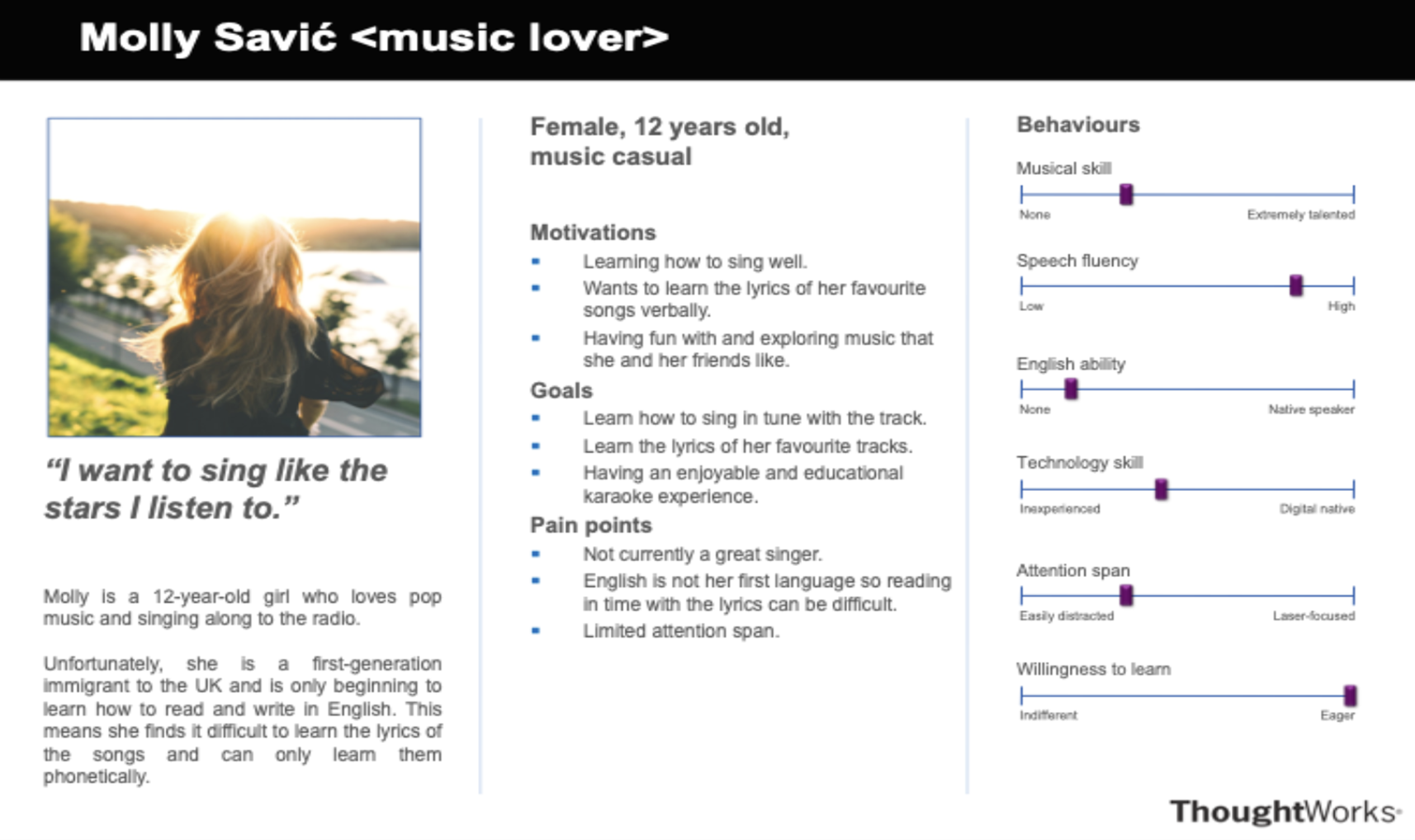Requirements
Project Background
Understanding the context and our client's needs
This project is a collaborative effort between Intel, a global leader in semiconductor innovation and AI technologies, and the National Autistic Society (NAS), the UK's leading charity dedicated to supporting autistic individuals and their families.
The idea for this initiative was proposed by the National Autistic Society with the goal of developing a karaoke-style application designed to encourage verbal engagement in an enjoyable and motivating way. Many autistic children experience speech development and verbal communication challenges, and the proposed solution aims to support these children by combining music, singing, and interactive visuals to promote regular speech practice in a stress-free, entertaining environment.
Intel is contributing its powerful hardware and AI capabilities, including Intel processors with onboard Neural Processing Units (NPUs) and the OpenVINO™ toolkit, to enable efficient, real-time voice recognition and visual rendering directly on the device—without constant internet connectivity.
Project Goals
Key objectives and aims of the project
We arranged several meetings with the sponsors to identify project requirements and ensure alignment with their objectives. As specified by the clients, Readingstar is expected to be a valuable tool for both schools and families. It is designed to help neurodivergent children build confidence in speech and reading by singing along to familiar songs while the app listens, matches, and highlights words as they are sung. Over time, this interactive experience could support improved verbal fluency, word recognition, and reading comprehension—delivered in a format that feels more like play than structured learning.
- Local Preprocessing: All audio and speech data must be processed locally on the device.
- Offline Functionality: The application must function fully without requiring an internet connection.
- User-Controlled Content Selection: Users, such as teachers, must be able to choose their own songs.
- Copyright Compliance: The system must avoid copyright issues by using permitted or local content.
- Development Platform: The application must be built using a suitable Windows development framework.
Requirement Gathering
Our approach to collecting and analyzing requirements
To ensure that the project will meet the goals and the needs of its intended users, we conducted a structured requirement-gathering process involving both the teachers from the National Autistic Society (NAS) and parents from participating schools.
We conducted informal interviews and structured Q&A sessions with both NAS teachers and school parents to collect qualitative feedback on the needs, preferences, and constraints of the application.
We analysed the interview answers by identifying key pain points and expectations. Then coming up with a solution for each concern the stakeholders had.
After consoluting with Intel partners, we found that it is most suitable and accessible to build a Windows native application. In order to use the OpenVino Toolkit, and the Intel NPUs
Personas
Representing the desired user experience
After gathering technical and user requirements, we produced personas and scenarios for some hypothetical target users in order to represent the desired user experience better.
Molly is an older kid whose family moved to the United Kingdom; she had taken some English lessons in the past, but she is struggling with colloquial speak. She notices she finds it easier to learn pronunciations phonetically when she listens to the radio. However, she does not learn how to spell the words when listening to the songs. She learns about ReadingStar in school and easily imports her favourite music from her iTunes account. The music is processed, and the words light up in front of her. She slows down the playback to let her sing with confidence. Molly gets to learn all the lyrics to her favourite song and imitate the singers' pronunciation.
George is a young child with autism, he is confident in his English skills and ability to express himself through writing; however, he finds public speaking difficult and experiences fluency disorders. He loves to sing, which he finds allows him to be more fluent by focusing on the rhythm of the music rather than the rhythm of words. His schoolteacher uses ReadingStar in the classroom and displays the Generative Imagery along with the lyrics on the board. George gets to play karaoke with his friends in a stressless environment and speak fluently with the music's rhythm. He gathers more confidence and remarks how fun the ReadingStar sessions are to his mother.
MoSCoW Requirements List
Prioritized requirements classification
We created a MoSCoW list to prioritize both the technical and non-technical requirements based on their importance to the project.
Must Have
- The system must have offline processing for all core functions including speech recognition and lyric matching.
- The system must have local audio preprocessing optimized for Intel hardware using OpenVINO.
- The system must have real-time voice-to-lyric matching with support for children's accents and varied pronunciations.
- The system must have a native Windows application optimized for Intel-based systems with NPUs.
- The system must have support for YouTube link transcription, allowing teachers to select songs.
- The system must have a high-usability interface, accessible to both neurodivergent children and non-technical users.
- The system must have Youtube music video embedded in the app.
Should Have
- The system should allow teachers to create and save playlist for the classroom.
- The system should have adjustable playback or difficulty settings to suit individual learners.
- The system should have visual feedback after a lyric is matched with the corresponding word.
- The system should have a non-scoring mode for pressure-free learning experiences.
- The system should have a scoring mode to provide feedback when desired.
Could Have
- The system could have customizable visual themes to personalize the user experience.
- The system could have a reward system (e.g., stars, badges) to increase engagement.
- The system could have a focus mode where distracting UI components are removed.
- The system could show a local leaderboard to encourage competition.
Won't Have
- The system won't store the voices of users to protect the privacy of users.
- The system won't use copyrighted songs to ensure GDPR compliance.

